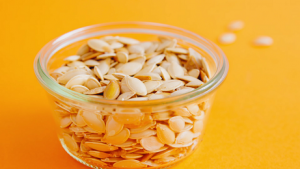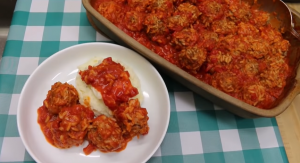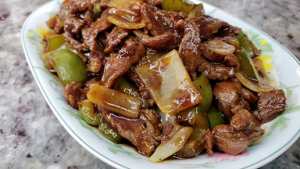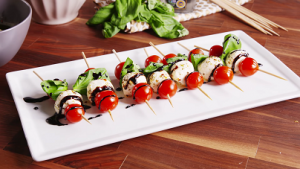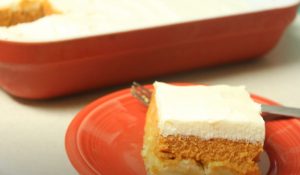Experience the rich, buttery, lemony goodness of a classic Hollandaise sauce. This sauce has a reputation for being a bit finicky, but with a blender and a few common ingredients, you can whip up a batch in minutes. This recipe will give you a foolproof method to create this traditional sauce, perfect for Eggs Benedict or drizzling over vegetables.
All the ingredients required for this recipe are generally common in most households. However, if you don't have any, the main ingredients you'll need to pick up from the supermarket are large eggs, butter, and a lemon. Be sure to choose fresh lemons, as bottled lemon juice can affect the final taste. As for the butter, go for unsalted one so you can control the saltiness of your sauce.
Ingredients for the Classic Hollandaise Sauce
Egg yolks: They are the base of the sauce, providing a rich and creamy texture.
Salt: Adds flavor to the sauce. Adjust according to your preference.
Black pepper: Gives the sauce a bit of kick and depth of flavor.
Lemon juice: Balances out the richness of the egg yolks and butter with its acidity.
Butter: Gives the hollandaise its velvety, smooth texture and rich flavor.
One reader, Adrien Wetzel says:





This classic hollandaise sauce recipe is a game-changer! It's incredibly easy to make and tastes absolutely divine. The rich, velvety texture and tangy flavor make it the perfect accompaniment to eggs Benedict or asparagus. I highly recommend trying it out for a gourmet breakfast or brunch experience.
Key Techniques for Making Hollandaise Sauce
How to make hollandaise sauce: A classic sauce made by emulsifying egg yolks and butter, flavored with lemon juice and seasoned with salt and pepper.
How to melt butter: Melt the butter in a microwave-safe bowl in 20-second increments until completely melted and hot to the touch. Alternatively, melt the butter in a small saucepan until it begins to foam.
How to blend hollandaise sauce: Combine egg yolks, salt, pepper, and lemon juice in a blender jug. Cover the blender with a lid and blend the yolk mixture at high speed for 3 seconds. With the blender still running, slowly pour the hot melted butter in a thin stream. The sauce will begin to thicken with half of the butter blended in.
How to season hollandaise sauce: Taste test the sauce and season with a little extra salt and pepper, if needed.
How To Make Hollandaise Sauce
Hollandaise is a good dressing for salads and even fried foods. Try making this delicious sauce at home with simple ingredients. You’ll definitely love it.
Serves:
Ingredients
- 3largeegg yolks
- ¼tspsalt
- black peppercracked, pinch of
- 1tbsplemon juicefresh, adjust to your taste preference
- ½cupbutterunsalted, 4 oz | 125 g
Instructions
-
Combine eggs yolks, salt, pepper and lemon juice in a blender jug.
-
Microwave the butter in a microwave-safe bowl in 20-second increments until completely melted and hot to the touch. Alternatively: Melt the butter in a small saucepan until beginning to foam.
-
Cover the blender with a lid and blend the yolk mixture at high speed for 3 seconds.
-
With the blender still running, uncover, and slowly pour the hot melted butter in a thin stream.
-
The sauce will begin to thicken with half of the butter blended in.
-
Taste test and season with a little extra salt and pepper, if needed.
Nutrition
- Calories: 245.68kcal
- Fat: 26.41g
- Saturated Fat: 15.80g
- Trans Fat: 0.93g
- Monounsaturated Fat: 7.46g
- Polyunsaturated Fat: 1.40g
- Carbohydrates: 0.82g
- Fiber: 0.05g
- Sugar: 0.19g
- Protein: 2.29g
- Cholesterol: 199.34mg
- Sodium: 104.82mg
- Calcium: 24.15mg
- Potassium: 26.46mg
- Iron: 0.37mg
- Vitamin A: 242.70µg
- Vitamin C: 1.48mg
Crucial Technique Tip for Hollandaise Sauce Success
When making hollandaise sauce, it's crucial to pour the butter in slowly while the blender is running. This gradual incorporation of butter helps to create a smooth and creamy sauce. If you add the butter too quickly, the sauce might break or separate, resulting in a less desirable texture. If this happens, don't panic. You can fix a broken hollandaise by adding a tablespoon of hot water while continuing to blend. This should help to emulsify the sauce and bring it back to the right consistency.
Time-Saving Tips for Preparing Hollandaise Sauce
Prep ahead: Chop and measure all ingredients in advance to streamline the cooking process.
Use kitchen tools: Utilize kitchen gadgets like food processors and blenders to speed up the prep work.
Organize your workspace: Arrange your ingredients and tools in an orderly manner to avoid wasting time searching for items.
Follow the recipe: Stick to the recipe to avoid mistakes and save time on improvisation.
Clean as you go: Wash dishes and utensils while cooking to minimize post-cooking cleanup time.
Multi-task: Plan tasks strategically to cook multiple components simultaneously and save time.
Substitute Ingredients For Hollandaise Sauce Recipe
egg yolks - Substitute with silken tofu: Silken tofu can be used as a vegan alternative to egg yolks, providing a similar creamy texture and richness to the sauce.
butter - Substitute with ghee: Ghee can be used as a substitute for butter in hollandaise sauce to add a rich, buttery flavor while being free of lactose and casein.
Presentation Tips for Hollandaise Sauce
Elevate the plating: When presenting the classic hollandaise sauce, ensure that the plate is clean and free of any smudges. The sauce should be carefully spooned onto the dish, creating a smooth and elegant presentation.
Garnish with finesse: Add a touch of sophistication by garnishing the hollandaise sauce with a sprinkle of freshly chopped chives. This not only adds a pop of color but also enhances the overall visual appeal of the dish.
Select the right serving vessel: Opt for a classic porcelain dish or a small ramekin to serve the hollandaise sauce. The choice of vessel should complement the luxurious nature of the sauce.
Incorporate texture: Consider adding a delicate microgreen or a small edible flower as a final touch to introduce a subtle textural element to the presentation.
Attention to detail: Wipe the edges of the serving dish to ensure a pristine presentation. Attention to detail is key when presenting this classic sauce to the discerning palates of culinary professionals.
Essential Tools for Making Hollandaise Sauce
Blender: A kitchen appliance used to mix, puree, or emulsify food and other substances. It's commonly used for making smoothies, sauces, and soups.
Microwave: A kitchen appliance that uses microwave radiation to cook, heat, and defrost food quickly and efficiently.
Microwave-safe bowl: A bowl specifically designed to be safe for use in a microwave, allowing for safe heating and melting of ingredients.
Saucepan: A deep cooking pan with a long handle, used for cooking sauces, soups, and other liquids. It's ideal for melting butter and heating ingredients.
How To Reheat Leftover Hollandaise Sauce
The best way to reheat leftover hollandaise sauce is to use a double boiler method. Place the sauce in a heatproof bowl and set it over a pot of simmering water, making sure the bottom of the bowl doesn't touch the water. Stir the sauce gently and continuously until it's heated through and smooth. This method prevents the egg yolks from curdling and maintains the sauce's creamy texture.
If you're in a hurry, you can also reheat the sauce in the microwave, but be very careful not to overheat it. Place the leftover sauce in a microwave-safe bowl and heat it in 10-second intervals, stirring well between each interval. Keep a close eye on the sauce and stop heating it as soon as it's warm and smooth. Overheating can cause the sauce to separate or curdle.
Another option is to reheat the sauce gently in a small saucepan over low heat. Stir the sauce constantly and remove it from the heat as soon as it's warmed through. If the sauce seems too thick, you can whisk in a small amount of warm water or lemon juice to thin it out and restore its original consistency.
Regardless of the method you choose, it's important to reheat the sauce slowly and gently to prevent it from breaking or curdling. If the sauce does separate or curdle, you may be able to salvage it by whisking in a small amount of hot water or lemon juice until it's smooth again. However, if the sauce is severely curdled or has an off smell, it's best to discard it and make a fresh batch.
Interesting Fact About Hollandaise Sauce
Hollandaise sauce is one of the five mother sauces in French cuisine, alongside Béchamel, Velouté, Espagnole, and Sauce Tomat. It is a classic emulsified sauce that is rich and creamy, often served with eggs Benedict, vegetables, or fish. The sauce is known for its delicate balance of flavors and its smooth, velvety texture. It requires careful attention and technique to achieve the perfect consistency, making it a staple in traditional French cooking.
Is Making Hollandaise Sauce at Home Cost-Effective?
The hollandaise sauce recipe is quite cost-effective for a household. The ingredients are simple and affordable, making it a budget-friendly option. The overall verdict for this recipe is 9 out of 10, considering its versatility and rich flavor. The approximate cost for a household of 4 people is around $5, making it an economical choice for a delicious and luxurious addition to various dishes.
Is Hollandaise Sauce Healthy or Unhealthy?
The classic hollandaise sauce recipe is relatively unhealthy due to its high saturated fat and cholesterol content. Here's a breakdown of the nutritional concerns:
- The recipe heavily relies on egg yolks and butter, both of which are high in saturated fat and cholesterol. Consuming excessive amounts of these nutrients can increase the risk of heart disease and other health issues.
- The sauce lacks any significant sources of fiber, vitamins, or minerals, making it a calorie-dense condiment without much nutritional value.
- The high fat content in the sauce can contribute to weight gain if consumed frequently or in large quantities.
While hollandaise sauce is undeniably delicious, it's essential to consume it in moderation and consider healthier alternatives when possible.
To make the hollandaise sauce healthier, you can try the following modifications:
- Replace some or all of the butter with a healthier fat source, such as olive oil or avocado oil, which contain more beneficial monounsaturated and polyunsaturated fats.
- Reduce the overall amount of fat used in the recipe to lower the calorie and saturated fat content.
- Incorporate more lemon juice or a touch of Dijon mustard to enhance the flavor without relying solely on butter.
- Serve the hollandaise sauce over nutrient-dense foods like steamed vegetables, whole grain toast, or lean proteins to balance out the meal.
- Use the sauce sparingly as a flavor enhancer rather than a main component of the dish.
Editor's Opinion on This Hollandaise Sauce Recipe
The recipe provided is a classic and straightforward method for making hollandaise sauce. However, using a blender to make hollandaise can be risky, as the high speed can cause the sauce to break. It's best to use a double boiler and whisk the sauce by hand to ensure a smooth and creamy texture. Additionally, the microwave method for melting the butter may result in uneven heating, which can affect the final consistency of the sauce. For a more foolproof approach, consider using a double boiler and melting the butter slowly on the stovetop.
Enhance Your Hollandaise Sauce Recipe with These Unique Side Dishes:
Similar Recipes to Classic Hollandaise Sauce
Appetizer and Dessert Pairings for Hollandaise Sauce
Why trust this Hollandaise Sauce Recipe:
This classic hollandaise sauce recipe is a tried and true favorite, crafted by a seasoned chef with years of experience in the culinary world. The use of real egg yolks and fresh lemon juice ensures an authentic and flavorful taste. The step-by-step instructions guarantee a smooth and creamy consistency, while the addition of melted butter adds richness and depth. Trust in the expertise behind this recipe to elevate your dishes with a decadent touch of homemade hollandaise.
Was this page helpful?
Have your own special recipe to share? Submit Your Recipe Today!








